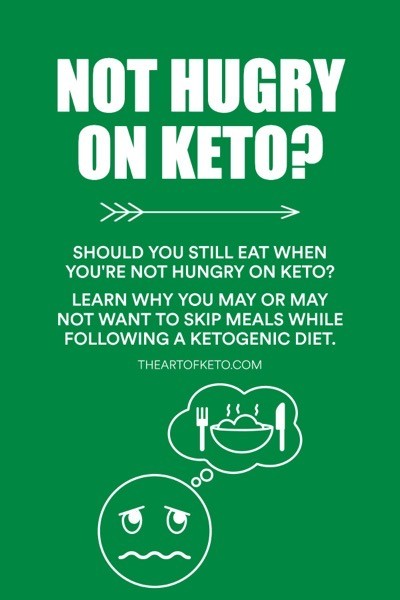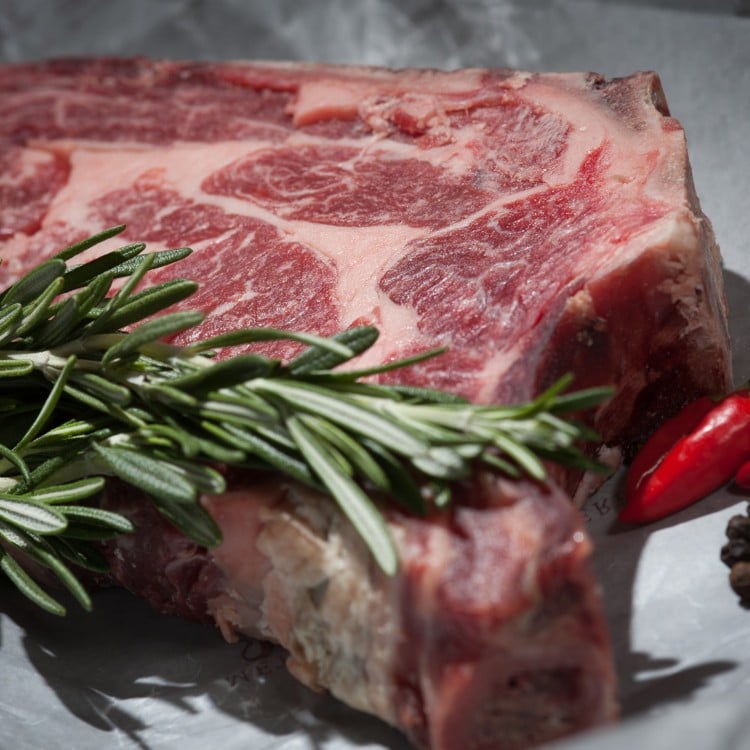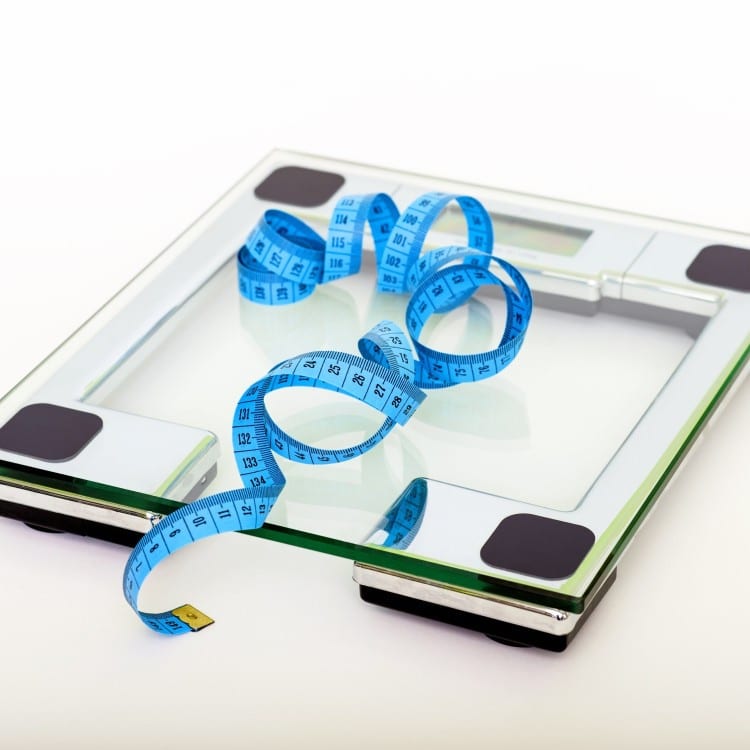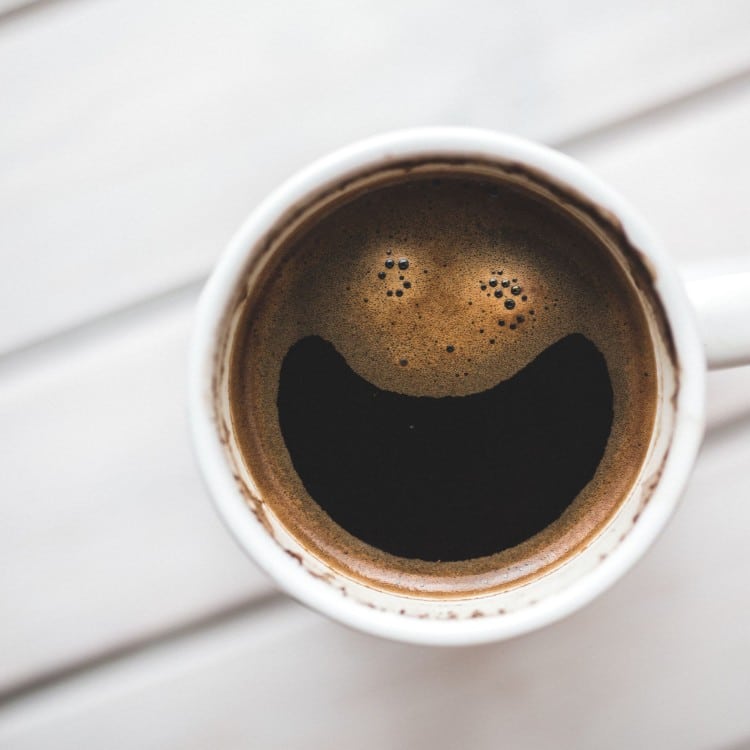Not being on hungry on keto is probably the best thing that can happen, unless you're trying to gain weight. Most people inevitably fail their weight loss diets because constant hunger inevitably prevails over willpower in the long-term.
If not feeling hungry on a keto diet, and weight loss is a primary concern, it's ok to wait till one is hungry before eating. However, if muscle gain is the primary goal, there may be times that eating even when not feeling hungry will be required for optimal muscle accrual.
In this article, I'll go over why you're not hungry while following a ketogenic diet, why you may want to eat, and the other times you should skip a meal.

Table of Contents
Why You Have No Appetite On Keto
Weight-loss diets are notorious for increasing appetites and causing physiological adaptations, which inevitably leads to regaining the lost weight.1
Studies suggest that ketogenic diets affect appetite, which is great if your goal is to lose weight. Multiple studies show that even without being asked to restrict calories subjects following a ketogenic diet were less hungry and had less of a desire to eat.23
In another study, a ketogenic diet suppressed appetite more than a ‘balanced diet' EVEN when the balanced dieters were given an appetite suppressant.4 As you see, a ketogenic diet is perfect for suppressing appetite, but why is that?
How Ketosis Affects Satiety
Increased protein

Protein has been shown in studies to be the most satiating macronutrient.56 Additionally, the ingestion of amino acids (protein) is a significant stimulant of cholecystokinin (CCK) which affects satiety.
The protein leverage hypothesis is a hypothesis (PLH) that humans prioritize protein intake when regulating total calories. The PLH states that you will keep eating until protein needs are met, whether that takes 1,000 calories or 3,000 calories.
Therefore, increasing protein may lead to satiation more quickly once your body senses enough protein. Consequently, the hypothesis also states that your body will remain hungry until it meets its protein requirements.
Ketones suppress appetite
Certain studies suggest ketones themselves influence appetite regulation and induce satiety7. Although, ketones role in suppressing appetite still needs further researching before making any claims.
Fat slows digestion
By nature, a ketogenic diet is high in fat. On a ketogenic diet, carbohydrates are severely restricted. Calories must come from somewhere after protein is calculated. Once carbs are restricted and protein is accounted for, this leaves fat as a buffer and primary fuel source.
Like fiber, fat in the diet slows digestion and delays gastric emptying8 This delayed emptying of the stomach would be expected to increase fullness and flatten the blood glucose levels and insulin rise from the meal.9
A flattening of blood glucose levels may lead to better signaling of satiety and hunger.10 Such is the case in a state of ketosis where the body does not experience fluctuations throughout the day like you would on a carbohydrate-based diet.
Leptin and Ghrelin
Leptin and ghrelin are commonly referred to as the hunger hormones. Leptin is responsible for signaling your body when it's full, and ghrelin is responsible for signaling your body that it's time to eat.
You can think of leptin like a thermostat that's stored in your fat cells. Everyone's thermostat is believed to be set at a different temperature. This point in which your thermostat is set is referred to as your body fat setpoint.
As you stray away from your set point in either direction, leptin and/or ghrelin is released to bring you back to homeostasis. This body fat setpoint is thought to be why it's not only hard to lose weight, but especially to maintain the lost weight.
Leptin is produced by your body's fat cells and carried by the bloodstream into your brain. Leptin gives the signal whether you have enough fat stored and to stop eating, or if levels are low and you need to eat.11
As you diet and begin losing fat, leptin goes down, and ghrelin (the hunger hormone) increases. In the case of weight loss, you want LESS ghrelin, not more.
Both ghrelin and leptin are important regulators of satiety and appetite. In a state of ketosis, studies have shown an association between being in a ketotic state and suppression of ghrelin, which can reduce feelings of hunger.12
This may be why ketogenic dieters don’t feel as hungry on keto compared to other diets.Skipping Meals On Keto
So now that you know why you may not be as hungry after starting keto should or shouldn't you eat when you have no appetite?
It depends.
Here are a few reasons why you might want to eat still even if you have trouble eating enough calories on a keto diet.
Why You Should Eat When Not Hungry On Keto
Prevent overeating at later meals
While not the case with everyone, skipping meals may lead you to become more ravenous later in the day or the following day. Many individuals, including myself, found intermittent fasting wasn't for them.
By skipping meals earlier in the day, they would end up overeating and overcompensating later on, which eventually led to sudden weight gain instead.
Prevent under-eating
There is such a thing as eating too little and losing weight too fast. Unless you're incredibly overweight, dieting at a more reasonable rate per week will lead to higher muscle retention and a more sustainable diet.
Skipping meals can also affect energy levels, which may cause you to move less, resulting in burning fewer calories. Reductions in non-exercise-activity-thermogenesis (NEAT) is an essential factor why it becomes harder and harder to lose weight as you diet.
NEAT is energy that you expend doing anything that isn't physical exercise. Neat includes things like walking the dog, doing the laundry, and even grocery shopping. NEAT can vary by 2,000 calories between people of similar sizes, which is why it may be easier for some individuals to lose weight or stay thin.13
As we begin to diet, energy levels start to dwindle, and naturally, NEAT decreases. Always under-eating may affect your energy levels to the point that weight loss slows or stops altogether despite eating less.
You may subconsciously begin to move less and less over time, resulting in slower or stalled weight loss.
How fast should you lose weight? I recommend losing between 0.5% to 1% of body weight per week. For individuals that have significant fat to lose, this number can be between 1% to 2% of body weight per week.
Your goal is building muscle

If your goal is to build muscle, not being hungry isn't an excuse to skip meals. There comes the point in time when you won't be hungry.
Similar to losing weight, hormones are released to maintain homeostasis in both directions. Once your body recognizes that it has enough fat stores, hunger decreases.
You have to suck it up and eat if your goal is to grow.
Provide energy for your day and workout
Skipping a meal once may not have a negative effect, but under-eating constantly may interfere with your energy levels. If you find yourself getting tired quickly and more easily, maybe it's best to have a little substance instead of none at all.
Why you Should NOT Eat When Not Hungry On Keto
Assuming none of the reasons above applies to you, skipping meals on keto when you aren't hungry can be a good thing.
Quicker Weight Loss

If your energy is good and you don't feel like eating, then naturally eating less will lead to more rapid weight loss. As long as you don't find your energy dwindling or overcompensating in subsequent meals and days, skipping meals is completely fine.
Learn to eat intuitively
Learning when and how much to eat is half the battle when it comes to weight loss and managing hunger. There are plenty of times that we think we're hungry, but the desire is just boredom, stress, or any other trigger you may have.
Skipping a meal when you're not hungry and allowing your hunger cues to dictate your food intake is something we all should eventually strive for.
If allowing yourself to skip meals, I would still suggest that you hit your daily protein intake to help spare lean tissue while dieting.
Tips To Help Suppress Hunger On Keto
If you find yourself always hungry and seeking ways to suppress hunger on keto, here are a few tips.
Eat less calorie-dense foods
Calorie density is a measure for how much energy (calories) there is per unit measure of food. For example, a 4-oz piece of chicken breast has ~100 calories, while five macadamia nuts also have ~100 calories.
I'm almost sure that the chicken breast would be more satiating than the five macadamia nuts.
High-fat foods, in general, are the most calorically dense foods you can eat. While you shouldn't go out of your way to eliminate all fats, making smarter substitutions when it makes sense can go a long way to keep you satisfied.
Eat more protein
More protein in the diet can increase feelings of fullness.14 You might even want to exchange some of your fat macros for protein.
Most people on a ketogenic diet are under-consuming protein due to misinformation. People are dead-set on sticking to certain percentage based macronutrients.
Think about it, if a 200-pound male is eating 2,000 calories and a 120-pound woman is eating 2,000 calories, do you think their protein requirements would be the same?
How much protein on keto is relative to your lean body weight, not a percentage of your calories.
It's better to each too much protein than too little.Increase fiber
Increase your intake of cruciferous vegetables and leafy greens. Foods that are high in fiber delay gastric emptying and help stretch the stomach, leading to feelings of fullness.
There's no need to be scared of carbohydrates from vegetables as most come from dietary fiber. On a ketogenic diet, you're most concerned with keeping your net carbs under a certain amount.15
Drink water
There are times we can mistake hunger for thirst.
Additionally, drinking water can also provide the same stretch to the stomach that a belly full of food offers, sending signals of fullness to the brain.
One study showed that drinking two glasses of water before a meal led to eating 22% less than those who didn't drink any water.16
Drink coffee

Aside from the many health and sports performance benefits, coffee has been shown to increase the release of peptide YY (PYY). PYY is a hormone produced in the gut as a response to eating and promoting a feeling of fullness. 17
Interesting enough, decaffeinated coffee seems to promote the same appetite-suppressing effects.
To save on calories, skip the bulletproof or keto coffee and stick with black coffee. You can use a little sugar-free sweetener in your coffee if you prefer.
Eat mindfully
How many times have you ate in front of the T.V. screen or flipping through your Instagram only to feel like you never ate? Practicing mindfulness and eliminating distractions while you eat can help you experience more pleasure while eating.
Get more sleep
Not only will you have more time to think about food if you don't get enough sleep, studies show that not getting enough can decrease satiety and increase hunger.18
Aim for ~7 to 8+ hours of sleep per night as a useful measure when possible.
Reduce your stress
If you're like me, you might resort to eating in times of stress. For others, stress can eliminate their appetites.
Stress raises levels of the hormone cortisol, which is thought to increase food cravings.19 Stress may also decrease the levels of PYY, a hormone that helps promote the feeling of fullness after a meal.20
Trouble Eating Enough Calories On Keto?
If you find yourself continually having trouble eating enough calories following a ketogenic diet, stick to more calorie-dense foods. Eat fattier cuts of meat and fish in addition to higher-fat dairy. Nuts are also a good option if you find yourself regularly not meeting macros on keto.
Skipping meals on keto once in a while is ok, but if you're continually underrating, you may:
- Lose more muscle
- Lack of energy
- Not eating enough nutrients (vitamins and minerals)
The truth is, if you're starting your weight loss journey, you may not be hungry, which is a good thing. Not being hungry is an ideal situation when it comes to losing weight on keto.
However, as you lose weight, appetite is will likely pick back up. You can revisit the section on how to help suppress your appetite when you find yourself not feeling as full as you once were.
Frequently Asked Questions
What happens if you don't eat enough on keto?
If you don't consume enough food on keto, you probably won't get into the ketosis state. All that will happen is that your body will feel deprived and hungry.
Should you feel hungry on keto?
The high fat, low carb, and moderate protein content in the keto diet help keep you satiated and feeling full. However, some people will feel hungry during the initial stages due to the carbohydrate withdrawal.
What puts you in ketosis fastest?
There's no easy way to put yourself into ketosis. The main thing you can do to enter into ketosis quickly is combining fasting and exercising with the diet.
